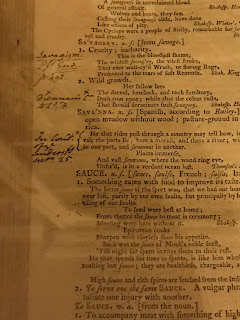‘You will own nothing, and you shall be happy’ has become the lightning rod for conspiracy theorists and associated, perhaps not accurately, with Klaus Schwab, the founder and present leader of the WEF, an organisation that descends upon Davos each year to pontificate and make backroom deals. The actual quote, as far as I can make out, comes from a WEF Promo video made in 2016; it headed a list of Utopian prophecies i.e. what an ideal world might be like in 2030. The conspiracy gained traction when, during the Covid crisis, the WEF talked about ‘The Great Reset’ i.e. the world would not return to what it had been before Covid but would ‘Build Back Better.’
Conspiracy theorists (and a label doesn’t make them necessarily wrong) believe that this is a well organised plot to reshape the world in the interests of global elites, a world where property rights are restricted politically and/or economically, where dissent is controlled by digital currency that can be cut off for ‘bad’ behaviour eg Trudeau and the Canadian truckers (the stick) and Social Credit where rewards accrue for ‘responsible’ behaviour, (the carrot)
The great and the good are quick to rebut these arguments as exaggerated fears and disinformation. Some inadvertently shoot themselves in the foot, when they attack the internet for spreading ideas they don’t happen to agree with. Rather like renaissance popes, preferring restriction to debate.
In photographs Klaus Schwab appears a pleasant old man, a benevolent grandpa handing out a Werther Original toffee, and yes, I know his father was a Nazi—another label used as a club by every man and his dog. Those who defend him see value in creating a forum where the world’s movers and shakers can share ideas on neutral ground. For example this year provided remarkable insights into the future of AI—one that is almost upon us.
You could even argue that ‘You will own nothing, and you shall be happy’ —rather than a chilling threat, is the essence of the Christian—certainly the monastic ideal. On a minor note, I ‘own’ CD’s but much prefer my Apple subscription for music I will never own.
But, at the back of my mind, are the words of Christ. ‘A good tree cannot bring forth evil fruit; neither can a corrupt tree bring forth good fruit. By their fruits ye shall know them.’ It’s a useful yardstick to judge individuals and organisations. With regard to the WEF, the conclusion is debatable, especially with men like Tony Blair rumoured to have his eyes on the presidency when the 82 year old Klaus pops his clogs and forgoes the profits he accrues from the organisation.
To be honest, I can’t call to mind any ‘good fruits’ emanating from the WEF other than the well remunerated prostitutes that flock to Davos every year charging £700 an hour – not a euphemism for the politicians. What I am aware of is the carbon footprint of those who’d lecture others. And what I am aware of are the delusions of grandeur from some of its participants, in particular John Kerry, who enjoys multiple homes, cars, yacht, and private jet. As one who has been touched by the finger of God, he rambled on: ‘When you start to think about it, it’s pretty extraordinary that we – select group of human beings because of whatever touched us at some point in our lives—are able to sit in a room and come together and actually talk about saving the planet. . . I mean, it’s so almost extra-terrestrial to think about saving the planet.’ And there was me thinking that was Superman’s job. Perhaps he’d been at the sherry.
What Davos man doesn’t say is that it is the ordinary Joe who will be doing the saving, restricted in travel, in heating their homes and doing without, learning to enjoy factory food and sustainable insects—meat preserved for those who can afford it along with the other small pleasures in life.
It may be that the likes of Kerry, Gore, Schwab, Blair, and their ilk have the power and wealth to make mischief, meddlesome Messiahs, touched by the finger of God or the Devil. It may be they’re a bunch of delusional men with more money than sense. In the words of John Lennon ‘Life is what happens when you’re busy making other plans.’ And when life and plans conflict, it can sometimes get messy.




























